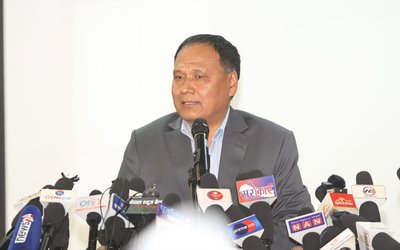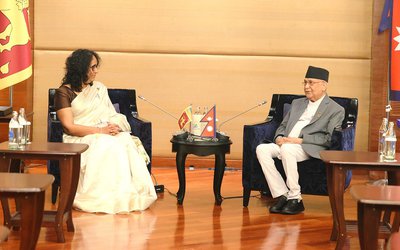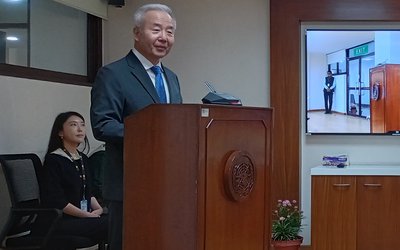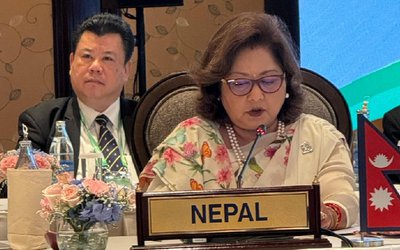
Although they do the most important, but dangerous, work of cleaning the city while collecting and managing the solid waste, the informal waste workers are the most hated people in the valley. Let alone other people, even the stray dogs don't like them for doing what they do daily.
For centuries, these waste workers have been treated as untouchables despite their role in cleaning the garbage, which is regarded as the worst form of work. Despite change in the legal and other provisions, people are yet to accept it and respect these workers. Along with social and cultural stigma attached to the waste workers, the level of poverty is also responsible for this. With the introduction of a new system, the formal waste workers have got better options.
The situation of informal waste workers has remained bleak. This is where the intervention of Practical Action matters. Thanks to the implementation of PRISM Project (Poverty Reduction of Informal Workers in Solid Waste Management Sector) by Practical Action, the state of these people has begun to change for the better.
At a time when the government is talking about the need to make the Kathmandu valley healthy and clean, informal waste workers, the main pillars of keeping the city clean, have just found some respite through the program launched under PRISM project.
State of Informal waste workers
”People often shout at us when we collect their waste, which is very humiliating," said Sakhiya Khatun. “After the implementation of the PRISM project, the situation has changed.”
It is estimated that there are between 10,000 and 15,000 waste pickers in the valley. They lead a life of humiliation and oppression in the absence of any social protection measures that would make their work more dignified.
After the implementation of the project, the income of waste workers has increased and the negative stigma attached to the profession decreased, improving their working conditions and helping them benefit from social protection schemes.
The Practical Action has been implementing the project with its local partner, the Centre for Integrated Urban Development (CIUD). Project associates are Solid Waste Management and Resource Management Centre (SWMRMC), UN-Habitat Water for Asian Cities Program Nepal, and Nepal Re-use and Recyclable Goods Entrepreneurs Association (NRRGEA).
In one instance, these people collected garbage and dumped it somewhere with a view to recycle it later, causing pollution at the neighborhood. The growing pollution forced the locals to help the rag pickers launch a One Day Cleaning Campaign.
"Nobody wants us because of our job. We bring in the recyclable waste matters here. As this provides our livelihood, how could we leave this profession?" questioned Ranjita Devi Poddar, an informal waste worker living at Boudha Fulbari settlement.
Project manager for the PRISM, Srijana Devkota, said "Waste picking should be equally recognized as honorable job in the society and PRISM will be working to help rag pickers to achieve the necessary respect for what they have been doing."
Urban waste pickers are among the poorest people in Kathmandu valley. Most live in squatter settlements along the riverbanks. They are exposed to many health risks through unprotected handling of waste materials, and due to their poor living conditions. The waste picking profession is despised by the rest of the society, despite its contribution to removing and recycling large quantities of waste. Waste workers are often exploited socially and economically. They find it hard to fight this exploitation due to a range of factors, including their lack of bargaining power, illiteracy, lack of market information, and lack of skills and technology which could help them add value to the materials they collect and recycle.
Working in 5 municipalities of Kathmandu valley, the project has the overall objective of improving the living conditions of informal workers in the solid waste management sector. It will also improve waste services for residents and protect workers' interests. The specific objective is to enhance the social protection of informal sector waste workers and vulnerable groups dependent on waste for their livelihoods.
- IME GROUP: Expands Into Paper Industry
- Mar 24, 2025
- CPN UML: Instigated By India
- Mar 23, 2025
- ADB’S CHIEF ECONOMIST: Nepal Reduces Poverty
- Mar 11, 2025
- FM DR. DEUBA: A Successful Visit
- Mar 11, 2025
- MD GHISING: Target Of Personal Grudge
- Mar 09, 2025















